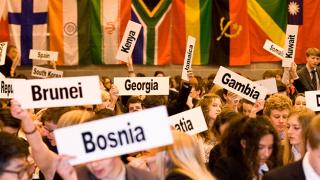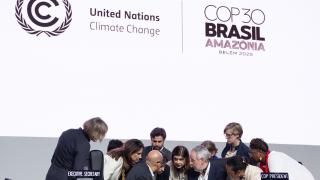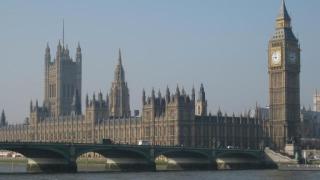
This speech was delivered at the opening ceremony of the 25th Bath International Schools' Model United Nations Conference that took place at Kingswood School on the weekend of 6 – 8 March 2015.
Introduction
Thank you, Madam Secretary-General, for your challenging opening remarks. Ambassadors and High Commissioners, it’s a pleasure to be with you to mark the opening session of this meeting of the United Nations. Honourable Delegates, in this pre-session address, I would like to take 10 minutes to do three things: Explore the world today and the role of the UN; discuss the urgent need for truly global citizens and finally, offer some advice on your meeting this weekend.The world today
To begin, then, on the wider context. Ambassadors I humbly suggest to you that the problems the world faces today are problems without passports: rising sea levels do not wait in line at immigration; Ebola does not respect checkpoints and terrorists are not scared of flying. But as well as sharing problems, we also share in the world’s prosperity: when we trade with other countries, we create jobs and livelihoods, lifting people out of poverty; when we share our knowledge we find cures for diseases, saving millions of lives and when we work together, we build machines that could take us to Mars. A better world benefits us all. Not only the refugee, desperately in need of food and shelter, but, actually, the employee of a Bristol factory that needs other countries to buy its aeroplanes. Or the homeowner on the Somerset levels where climate change increases flooding. Our response then, is as obvious as it is simple. We must strive towards a safer, fairer and more sustainable world together. But what does this look like in practice? Well… the United Nations. 193 countries meeting as one, aspiring to put aside narrow national self-interest for long-term interests of the whole globe...- In a world where individual countries are mistrusted because of historic or political tensions, no other global organisation carries more legitimacy to intervene.
- In a world where charities and NGOs lobby on single causes, no other global organisation deals with more issues, using joined-up solutions for joined-up problems.
- In a world where country coalitions can be exclusive clubs, only one global organisation has more members… FIFA.
- Halved the number of people living in extreme poverty
- Protected the ozone layer
- Wiped out polio and smallpox
- Cleared landmines
- Provided safe drinking water for over a billion people
- Prosecuted war criminals
- Our international postal system works; a letter sent from Afghanistan to Zimbabwe will reach its destination (Universal Postal Union)
- Historic and significant monuments across the world are protected (UNESCO)
- Aeroplanes, ships and even satellites don’t bump into each other (IMO and International Civil Aviation Organisation)






